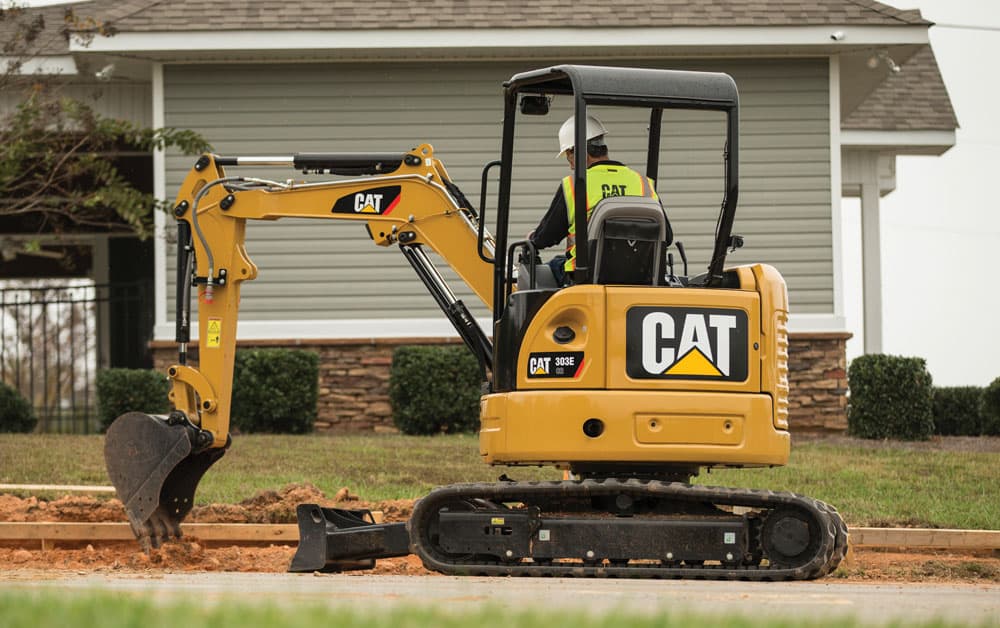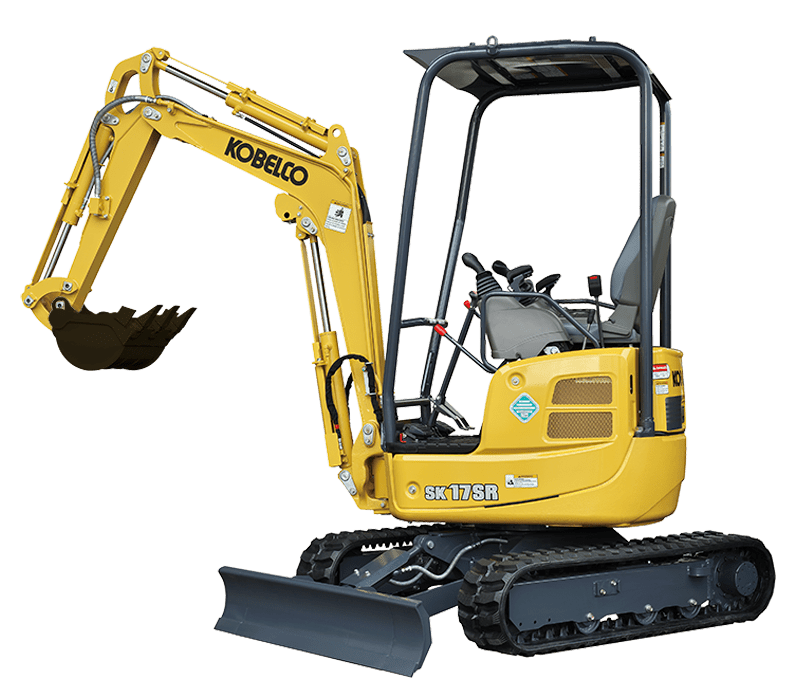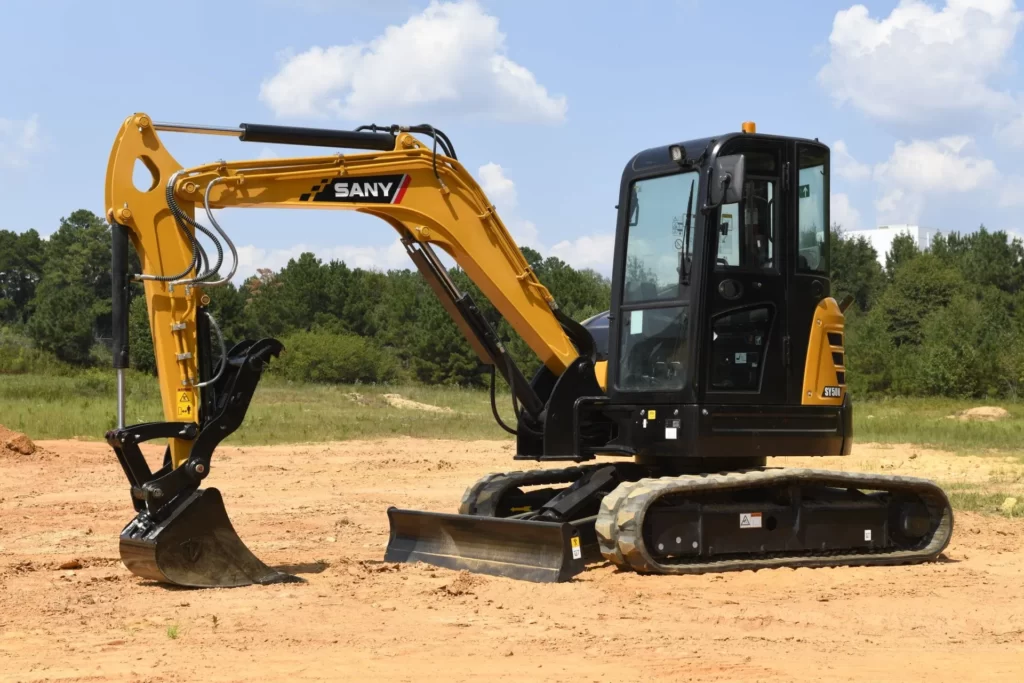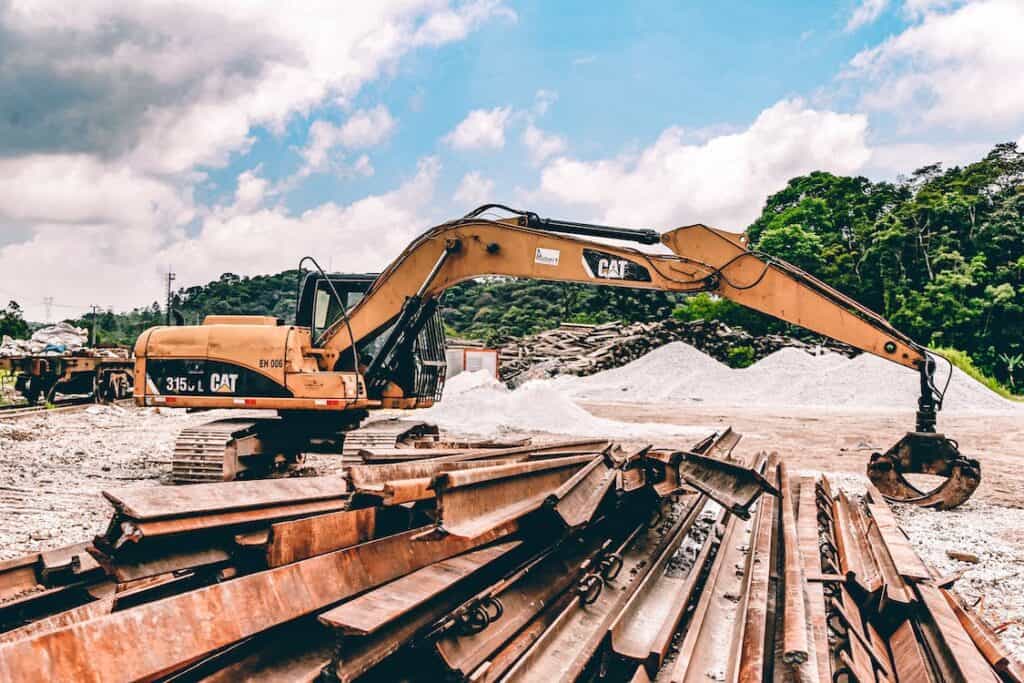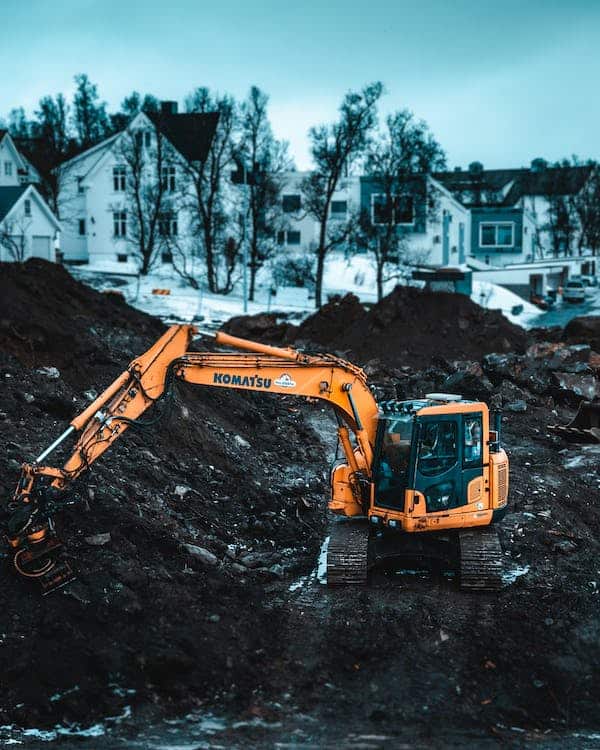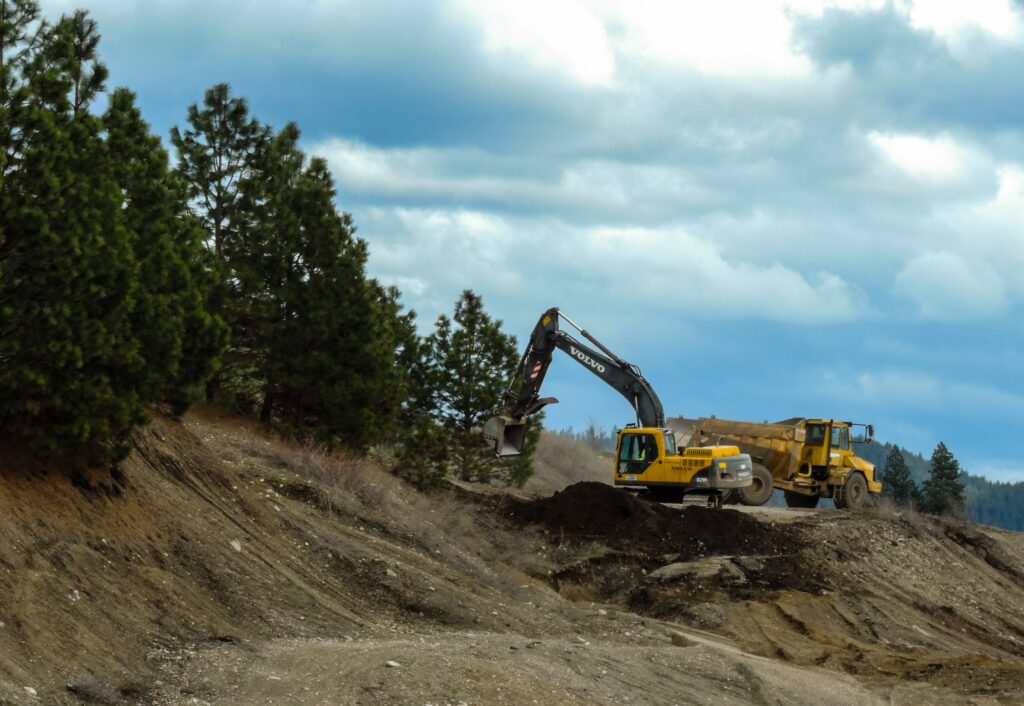Introduction:
The construction industry has more than 733,000 employers and over 7 million employees. This is the top contributor to the U.S economy, generating approximately $.14 trillion worth of structure every year. According to the united nations environment program, building and their construction together account for more than 35% of global energy use and nearly 40% of energy-related carbon dioxide emissions annually. As the world is facing a climate crisis, the construction industry has to find ways to adopt greener energy solutions. It is a critical challenge to ensure the momentum of transformation for lowering construction emissions doesn’t get slow. Mini excavators are generally very good and effective for digging and other such tasks but in this article, we will discuss that do electric excavators have a future in construction.
Why Are Excavators a Good Candidate for Electrification?
Zero emissions:
As stricter standards for zero emissions continue to arise, even off-highway applications have begun to feel the push to lower their CO2 emissions. Urban cities have started to implement zero emission zones (ZEZ which require any vehicle, on-or off-highway, to comply with the area’s regulations. For this reason, construction zones in urban cities have sought out electrified products such as electric excavators which match or exceed the reliability and performance of their diesel counterparts. These electric excavators are now considered invaluable for indoor construction sites, where the diesel counterparts were unable to function due to the fumes they emitted and poor ventilation.
Noise pollution:
As more cities implement ZEZs there has been a notable decrease in noise pollution. What was once a loud machine that caused a disturbing ruckus when turned on, is now just as quiet when operating as it would be when turned off. A reduction in noise pollution is not only satisfying to the construction site’s surrounding areas but in many ways decreasing environmental noise could have positive effects on passerby’s health. Regardless of noise, construction companies want assurance that these electrified excavators can get the job done. An added advantage of reducing noise pollution is improved communication between the operator of the excavator and other workers on site. By removing the engine-induced vibrations both the operator and the workers guiding the operator can hear each other better.
Interoperability:
Many operators have noticed that there is no difference in machine interoperability between electric and diesel counterparts. The performance of an electric excavator can be easily matched by the performance of diesel vehicles. Their motor response to fluctuations in load is faster due to the connectivity speed between the electric module and battery which allows for better operating performance and feel.
Maintenance:
Because electric excavators do long runs on traditional fuel so the need for coolants and oil filters is eliminated and significantly decreases the maintenance intervals. The vehicle also has a lower number of parts that need to be maintained which can potentially result in the total cost of ownership being more affordable than their diesel counterparts.
Some Major Challenges Which Electric Excavators Face Today:
Packaging:
Packaging has always been an issue in the electrification space as these machines were optimized for diesel engines, not batteries. While batteries are less energy dense as compared to traditional fuel, they require additional components that a diesel engine and fuel cell don’t such as a thermal management system. So, the most prominent question that engineers are working to answer is how do you pack a battery with enough energy and all its components into an existing diesel machine?
Heating and cooling:
Being enclosed in such tight spaces and exposed to all kinds of weather, excavators need to perform under all kinds of temperatures. However, due to the compactness of the machine, adding a component for cooling is not always possible. From a heating point of view, the battery can’t operate if its below 0oC due to its chemical composition. The other major difference is the recharging schedule of these electric mini excavators. It can limit how much work they perform and impact your schedule.
Benefits of Electric Mini Excavators:
Here are some key benefits of electric mini excavators:
Zero net carbon emissions:
The major difference and advantage between internal combustion and electric mini excavators is the zero net carbon emission. Due to this, these machines can also be used in areas where there are restrictions on carbon emissions as well as on other air pollutants directly emitted from internal combustion equipment. The lithium-ion battery packs eliminate the need to depend on fossil fuels thus making them a greener and more sustainable option. This in return also reduces operating costs as the need to refuel is eliminated.
Noise level reduction:
With noise levels drastically reduced during usage, electric machines help to protect the long–term oral health of the operators. Also, electric construction equipment can help to extend the work hours in places where there are noise restrictions. Additionally, these electric mini excavators can be used in areas where traditional internal combustion diesel-powered machines are restricted or cannot be used such as indoors or places with high foot traffic, children, or the elderly.
Increased operator comfort:
Reduced noise levels coupled with fewer vibrations during usage help in increasing the operator’s comfort. Fewer vibrations and quick start can be attributed to the removal of the internal combustion engine system.
Reduced maintenance costs:
As mentioned before that electric mini excavators are designed with fewer parts and don’t have the traditional hydraulic system in them. So their maintenance servicing, as well as operational costs, are lower than their internal combustion competitors.
Best Available Options for Electric Mini Excavators From a Construction Point of View:
Bobcat:
Electric-powered compact mini excavators and rapidly gaining traction. Announcements of electric-powered compact mini excavators, compact track loaders, and other such machines have taken the electric construction equipment market by storm. Manufacturers including bobcat and Doosan have introduced electric options for some of their existing diesel machines. Let’s take a look at these options. Bobcat electric construction machines also include an electric compact excavator E10e. However, this machine is not available in the North American markets yet. However, it’s making waves in other parts of the world with its compact design and near-silent operations.
Doosan:
Doosan Infracore North America’s heavy construction machines are famous for their power, performance, and durability. By expanding their portfolio to include compact excavators they are bringing to the compact machines segment. Slated for launch between Q2 2023 and Q2 2024, Doosan is bringing in four models of electric mini excavators. These include DX17ZE, and DX19E to be launched in 2Q 2023, DX 10ZE in Q1 2024 and DX27ZE in Q2 2024. With different mini excavator models of different capacities, Doosan is targeting a wider range of customers. From landscaping to utility works, depending on your needs, you will have an electric mini excavator option to pick from.
Performance Analysis as Compared to Internal Combustion Mini Excavators:
Electric mini excavators also have the same hydraulic system as internal combustion mini excavators have but it’s driven by an electric motor instead of an engine. Regarding the control system, the internal combustion mini excavators perform pump control and engine control with the machine body controller and the engine controller. For electric mini excavators controller that controls the high-voltage system and an inverter controller which controls the electric motor is provided to achieve the equivalent performance. Although for electric mini excavators the operator doesn’t require any particular skills or knowledge to operate the machine. In addition, the following functions allow these mini excavators to operate with the added benefit of a reduction in power supply.
Some Other Features of Electric Mini Excavators:
Work mode selection of electric excavators:
The work mode selection feature allows the operator to choose between higher productivity and longer operating time. It mainly depends on the circumstances of work.
Auto deceleration:
This feature reduces the rotation speed of the electric motor when the work equipment control lever is neutral.
Auto idle shutdown:
Stops the electric motor automatically when the machine has been idling with the lock lever locked for a preset amount of time.
Normal charger:
The onboard normal charger can charge a battery from a domestic power supply (the patent for performing safe charge control is still pending). This enables constant current and constant power charging. This charger has a two-stage configuration of a power factor correction circuit designed in-house and a DC-DC converter and is also compliant with the European EMC standard of EN61204-3. The power factor correction circuit makes the normal charger compliant with harmonic immunity regulations. The DC-DC converter enables current and voltage control over the wide voltage range of the battery. In addition to this by adopting feed-forward control, this charger achieved high robustness against grid power abnormalities. A portable quick charger is prepared so that it can be charged at the work site.
Highly reliable power unit:
This newly developed in-house high-voltage power delivery unit operates safely under the harsh environmental conditions endured by construction machinery which requires resistance to vibrations and waterproofing and so on. This unit has a built-in converter for electrical components, a high-voltage control circuit as well as the above-mentioned normal charger.
This converter for electrical components charges a battery for electrical components. The high-voltage control circuit has a mechanism that distributes the battery power to the inverter to control the electric motor during operation. It shuts the motor off during charging to prevent the engine from driving thereby ensuring the safety of the operator and the surrounding environment.
Motor-in-operation beacon lamp:
During the time in which the vehicle is in operation and the motor is running, the beacon lamp which is installed behind the canopy will light up and rotate to notify workers in the surrounding environment of its operations.
Double monitoring of charging plugs:
Both quick charging and normal charging are designed to monitor the connection status of the charging plugs. These electric mini excavators monitor the status using the electric controller and the inverter controller. Safety is assured by ensuring that the electric motor is shut off when any charging plug is connected during operation and that no battery power is supplied to it during the charging process.
Compliant with ROPS & OPG top guard standards:
The standard equipment includes a headguard meeting the ROPS (ISO 3471), OPG top guard Level I (ISO 10262), and industrial safety and health Act standards. Used together with a retractable seatbelt, the operator is protected from being thrown from or falling out of the machine as well as from falling objects.
Separation of high-voltage section:
By concentrating the daily inspection sections in the front and the high voltage section centrally located at the rear of the machine and only accessible by qualified personnel, quicker operation and safer maintenance of the machine are made possible.
Price and Cost Comparison Between Diesel and Electric Mini Excavators:
As far as price’s concerned buyers can expect to pay twice what they pay for a diesel-powered model of the same variant. However, as technology advances and more electric machines enter the market these prices will change. Operators are encouraged to look at the return on investment (ROI) on electric mini excavators. Limited service costs, minimal related maintenance, elimination of exhaust extraction requirements, and increased after-hours/noise-restricted work opportunities can provide enough ROI to cover the up-front cost in approximately five years depending on the usage of the machine. While looking at maintenance tasks, the engine upkeep is replaced with battery charging. Operators are still required to conduct visual inspections on hydraulic lines and grease machine components. In electric mini excavators, there is no engine-related maintenance. The only supplies required for these are grease and hydraulic oil. The lifetime of the battery-electric components should be equal to or better than that of the diesel engine on a conventional machine.
Conclusion:
The battery-powered compact excavator is one of the latest innovations in the evolution of the compact excavator machine concept. The technology is young and available options are currently unfortunately quite limited, but production is ramping up. However, the electric compact excavator is a trend contractors should keep an eye on as early adopters are already taking advantage of the benefits. Expect battery-powered versions of these machines to be more prevalent within the decade. For more information, please contact us.

